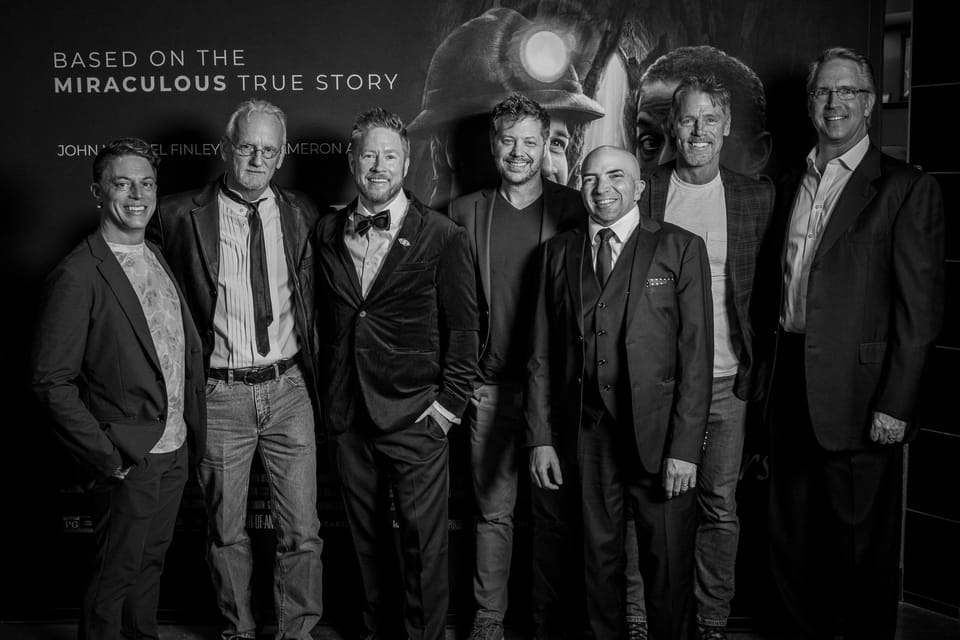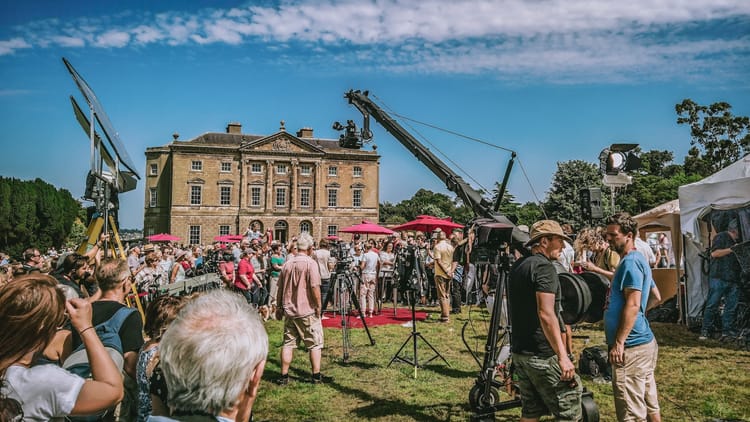What Does A Producer Do?

One of the many goals I have with this site is to help investors become filmmakers, specifically Executive Producers.
It would help, then, to understand what a producer is and what a producer does.
This is not meant to be an exhaustive list, but an overview, so that you can see the difference between a producer and an Executive Producer (EP). I will cover the many different types of producers in another post.
Movies start with a story...
Whether true or imagined, someone has the desire to turn that story into a movie. In that moment, that person embodies what a producer is - someone who shepherds a story from a germ of an idea into a movie playing on the big screen.
If the person with the idea is a writer, until they hand off the script to a producer, they must take on the role. If a director attaches themself to the story, they share the responsibility.
Only when a producer is attached or hired does the responsibility shift.
The producer is now the shepherd of the story and is responsible for every aspect of turning it into a movie that can be watched by the audience it was intended to reach.
The early jobs a producer performs is to help develop the story, package the project, and raise money to move into the next phases of pre-production and production.
This is when an Executive Producer is needed. An EP is industry speak for someone who either a) finances the film, or b) owns a company that will help finance and produce the film.
The producer is still the shepherd. They raise the money, tap into their connections, and help assemble the team and the resources needed to produce the movie, similar to a startup founder or CEO. Until more “personnel”, or crew, are hired, the producer bears the responsibility for every department.
Once the money is raised and the story is developed, the producer and director venture out into the film community to find collaborators. The script acts as an invitation of sorts - come and turn this story into a movie with us!
Once the cast and crew is hired, the EP(s) send(s) the money to finance the production. Locations are locked in, equipment is rented, costumes are made, and for a number of weeks an entire cast and crew come together to make a movie together.
Through it all, if anything needs to be done that requires money or permission, it is the producer that must grant it. They are still in charge of everything, though at first glance it may not appear they’re doing much.
They’re not acting. They’re not holding a camera or a light or a boom. They aren’t designing or moving or driving anything. That is, unless something needs to be moved and no one else can do it in that moment.
If you’ve done your job well as a producer, you can sit back and wait for problems to come to you. If you chose the right career for your personality, you thrive on problem solving. It means that you’re still the shepherd, and that is where you get much of your personal fulfillment from.
Once the movie is filmed, it goes into post-production, where the editor(s) and the director work to edit the film. Then the composer, sound designer, colorist, and visual effects artists help complete the film. The producer sets out to procure distribution - if they haven’t already done so.
I highly recommend lining up distribution before raising the money for the film, but that's a post for another day.
Once the film is finished it is handed off to or you partner with a distributor, a marketing team is assembled and stewardship is now shared with everyone who worked on the film to help it reach as many people as possible.
Only once the final marketing dollar has been spent is the stewardship released - for a moment - to the audience. The very group the film was made for now becomes the steward of it in the marketplace. People watch the film, tell others about it, recommend it, review it, and then, after a while, it stops.
The very group the film was made for now becomes the steward of it in the marketplace.
The producer returns, again, as the shepherd to help the movie find a new home - a place where people can come visit - to rent or purchase or stream the movie.
A knock comes to the producer's door, with an invitation to shepherd another story, and the journey continues...
As you can see, the producer is actively working on the film every day. It’s not a job that ever ends, unless the film is purchased outright by another company.
The Executive Producer’s role is much more hands off. They provide the resources the producer needs to succeed, but doesn’t have much - if any - say in the creative aspects of turning a story into a movie for an audience. They help how they can, with money, connections, resources, and the like.
Both are needed. Both are essential. The EP can even help shepherd the film if time and energy allows. But it is the producer(s) that take(s) on all of the responsibility for the film.
So what does a producer do? They take responsibility for everything. The best do it with humility, meekness, confidence, and selflessness.
At least that's how I aspire to be.
To learn more about my upcoming projects, check out Producer Fund.





Member discussion